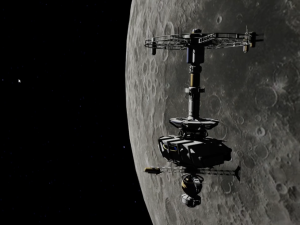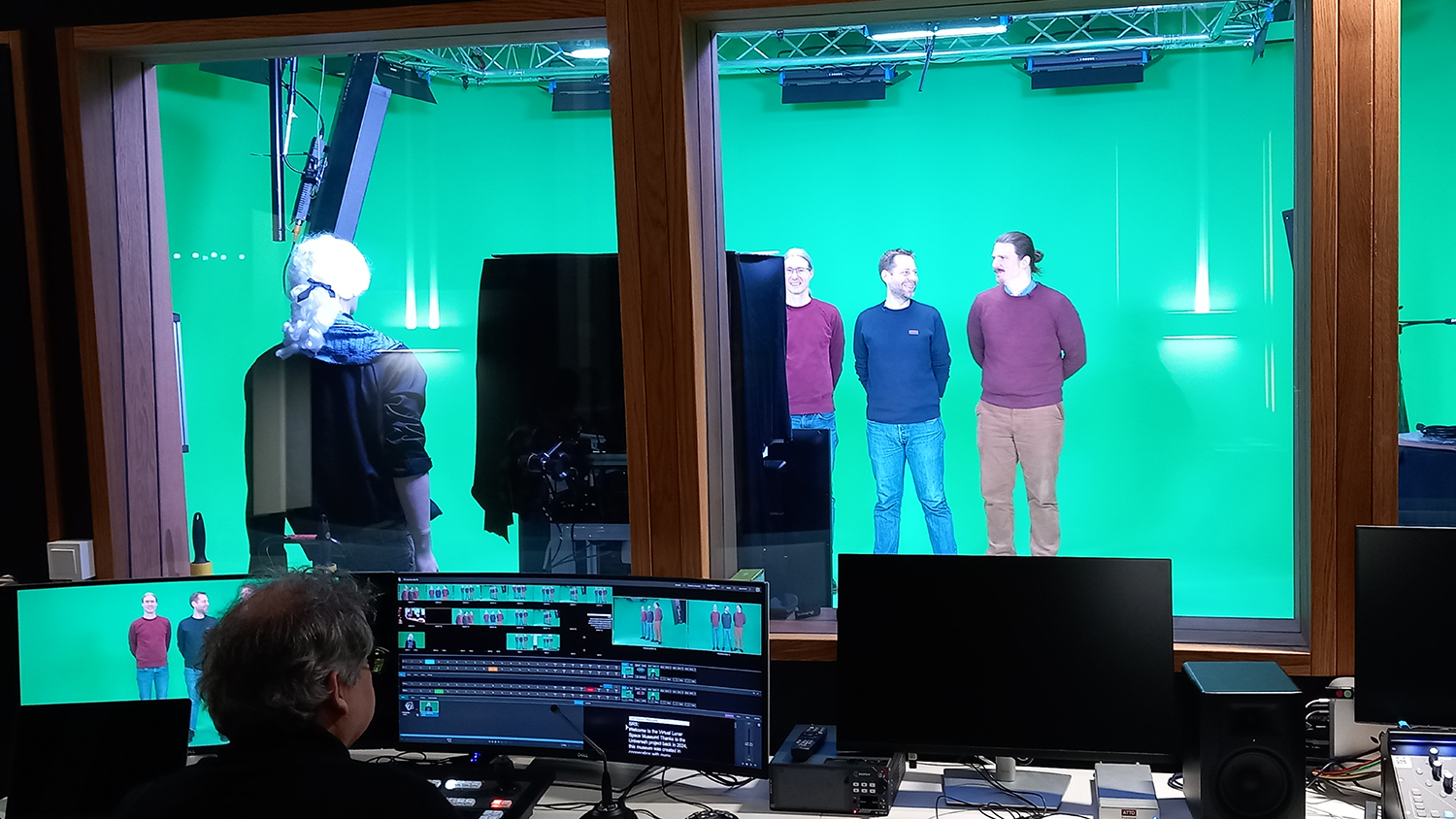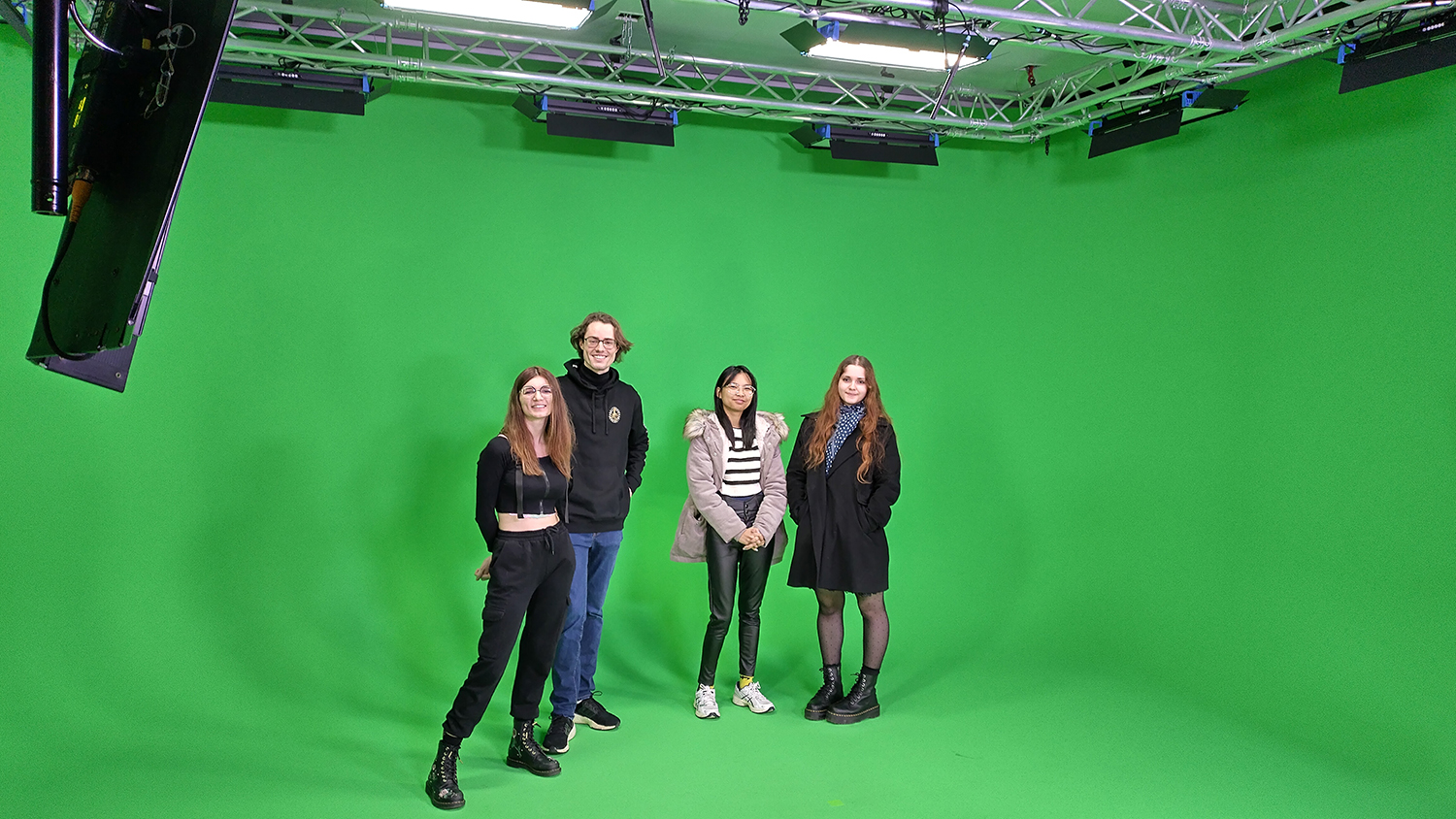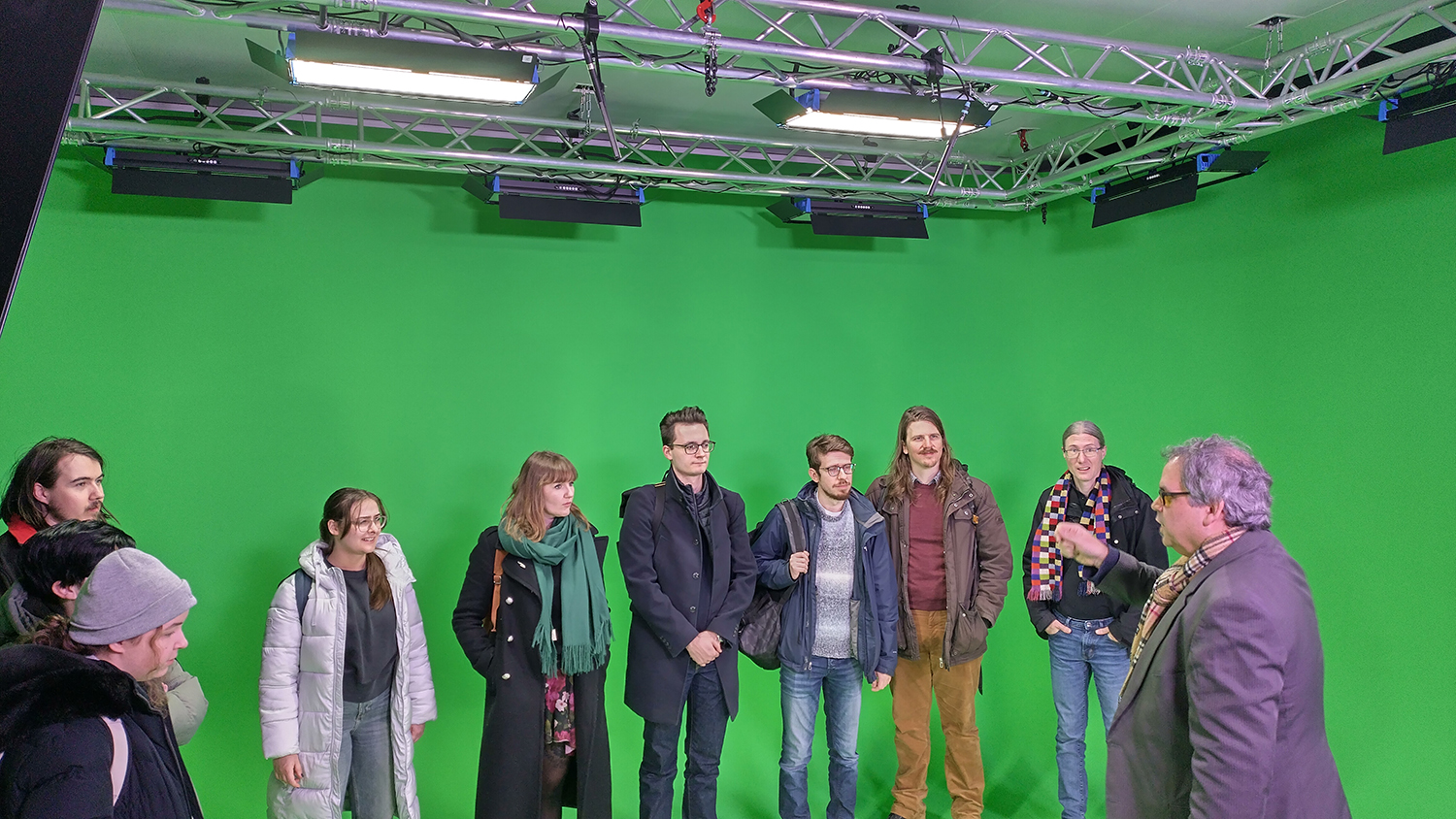In the winter semester 2024-25 we launched a new UNIVERSEH seminar titled “Mankind and the Moon: Mining 400 Years of Space Exploration” which brought together students in history and animation studies to combine historical research with 3D modelling. With a focus on the human perception of space since the early modern period, the seminar produced a 3D virtual museum floating in space realised using the Unreal game engine.
As part of the UNIVERSEH course offerings, the seminar was co-organised by Stefan Reiners-Selbach, Tobias Winnerling (Heinrich-Heine University Düsseldorf) and Marten Düring (Luxembourg Centre for Contemporary and Digital History (C²DH)) together with the University of Luxembourg Bachelor in Animation Studies led by Jacopo Armani and Sascha Helsper (University of Luxembourg MediaCentre).
The seminar was structured in three phases. The initial phase provided students with theoretical foundations and hands-on training in digital source analysis based on a guest lecture by Silke Schwandt, training in the usage of Voyant and the Impresso Web App. To help them trace the evolution of cultural narratives about space exploration across centuries, students learned to work with both early modern encyclopedias and digitized newspaper collections and followed guest lectures on premodern moon voyages by Achim Landwehr and imageries surrounding the 20th century space race by Sven Grampp.
The second phase, onsite in Düsseldorf allowed students to develop their research projects based on the available sources, alongside methodological research skills and in interaction with the animation artists. A concluding onsite meeting in Luxembourg focused on the translation of historical research findings into virtual world presentations which were recorded in front of the MediaCentre’s green screen and then integrated into the museum.
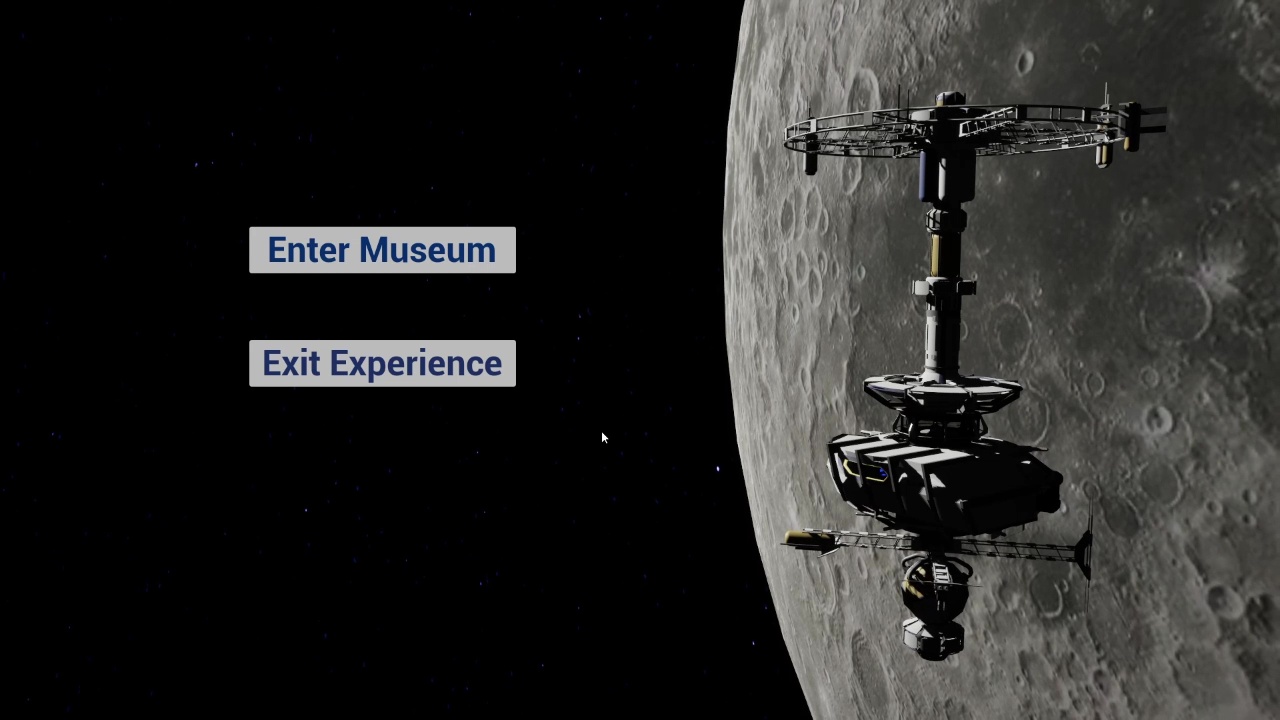
The history students focused on digitised early modern encyclopedias and the historical newspaper collections provided by the Impresso project, using both Voyant Tools and Impresso’s web app for complementary distant reading perspectives on their sources. Three groups emerged: The evolution of telescopes and with them the transformation of the human perception of space (Joshua Mößmer and Jaron Riedel), the long and rich history of cultural connotations surrounding Mars and Venus (Lisa Hönes and Alissa Fürtges) and finally, the imaginations of Alien life forms from early modern drawings to modern-times depictions (Simon Baunach, Annika Steffl, Franziska Bockover and Lisa Heyer).
The museum showcases the outcomes of the student-led research in three 3D-rendered spaces with carefully selected objects to help illustrate the outcomes of the research projects. Each room is accompanied by short student presentations of their findings in the form of holograms, recorded by the University of Luxembourg MediaCentre.
Both spaces and objects were co-designed by history and animation students under the supervision of Alexander Coast. For the telescopes, Victoria Sarat created a balcony with models of historical telescopes and a mission control console. Lorène Collin created a staircase together with an open exhibition space to display historical movie posters and models of historical perceptions of life on the moon and alien life forms. Finally, Morgane Sarac created a scholar’s study to display a wealth of objects historically linked to Venus and Mars. Exchanges between students and lecturers over the design of the spaces and objects took place during on-site meetings and in parallel via Discord which played an essential role for the discussion of images, models and texts to be displayed in the museum.
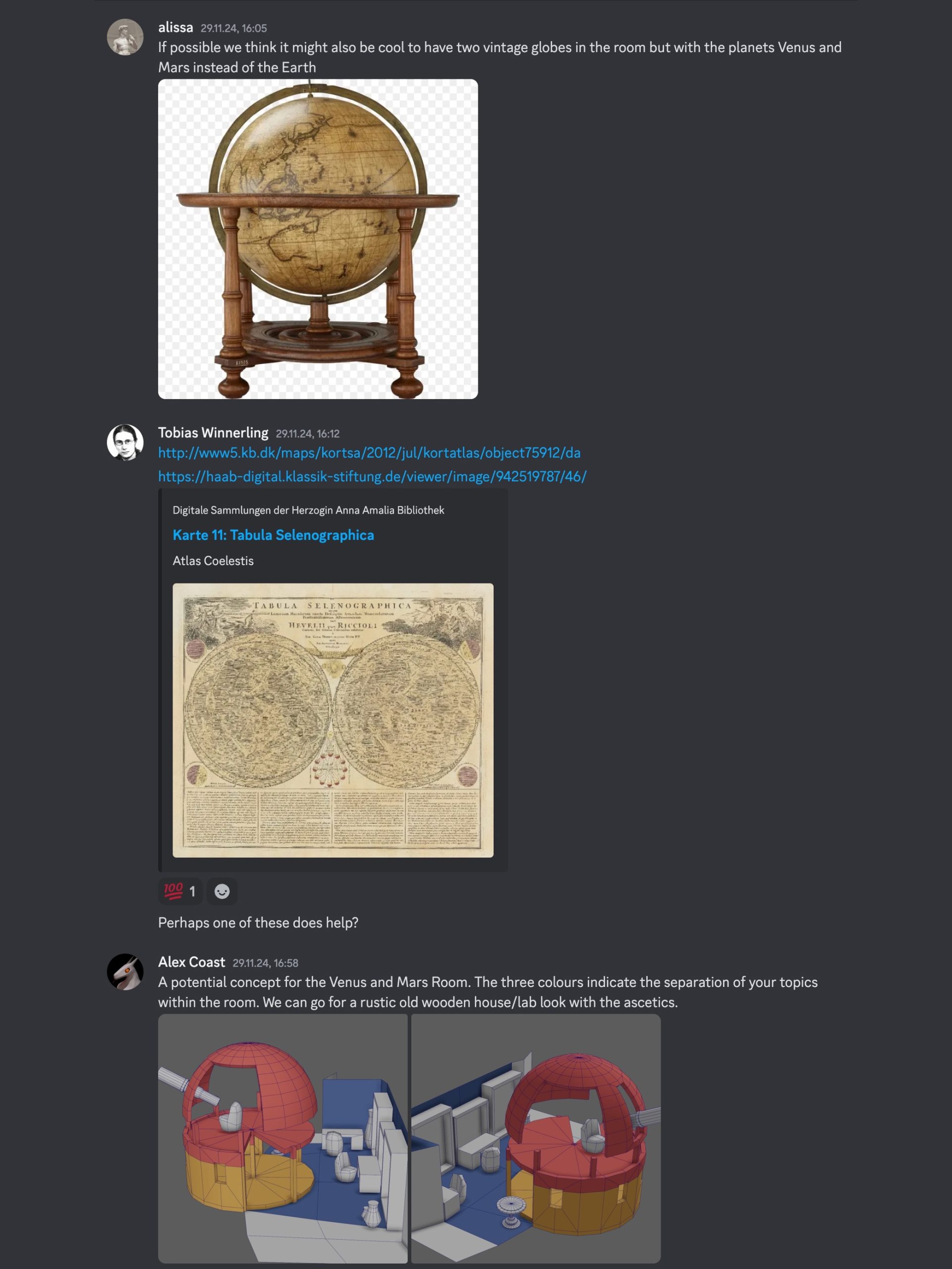
During the co-design process, ideas inspired by historical sources merged with the ideas for 3D modeled spaces.
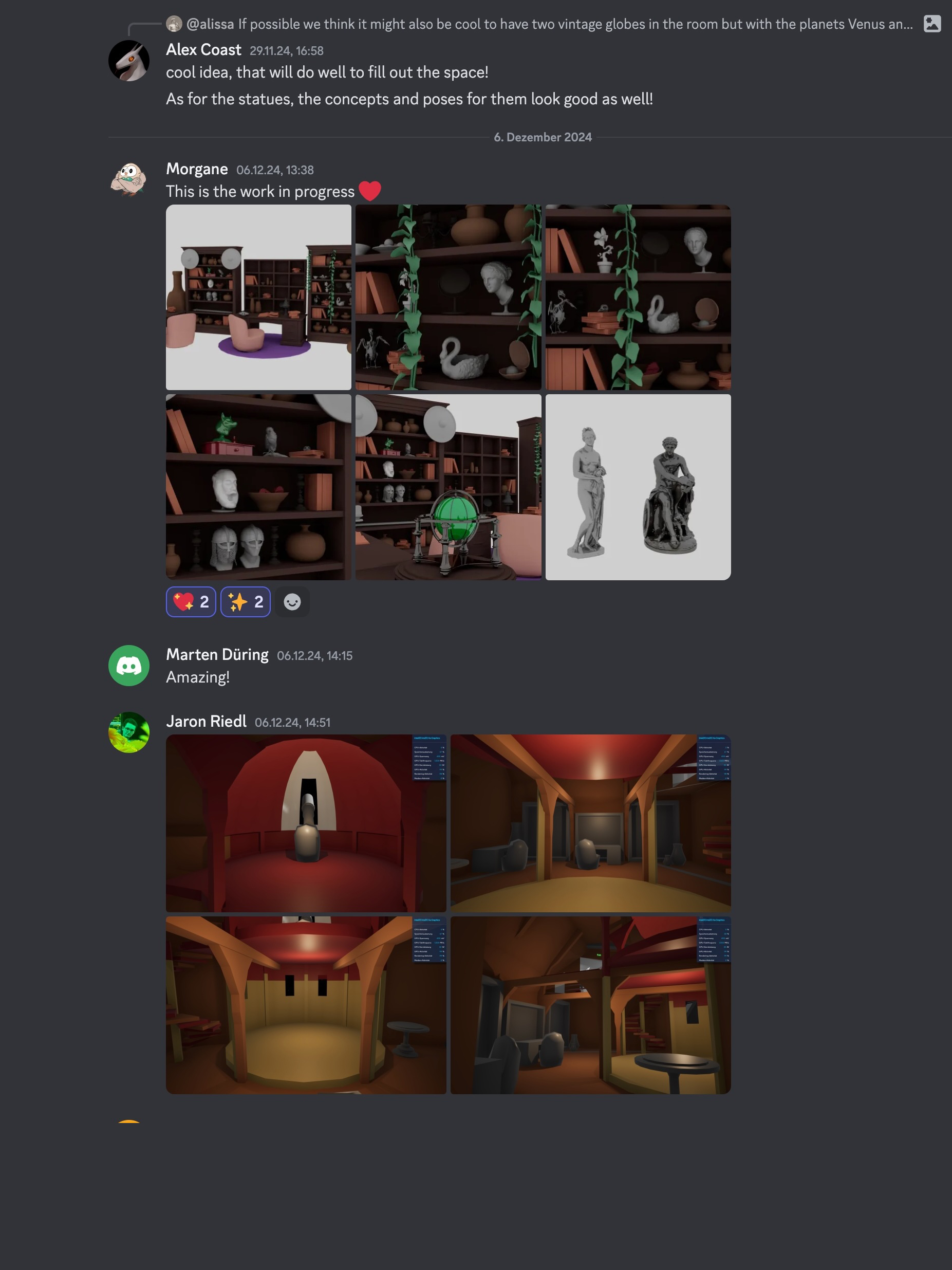
The seminar’s distinctive approach lies in its integration of traditional and digital historical research methods with novel presentation techniques. From an educational perspective, it strives to equip students in both disciplines with (digital) research and presentation skills, experience in project management and cross-disciplinary communication.
Following the successful first run, the seminar will be offered again in the coming winter semester as part of the UNIVERSEH curriculum and is open to Bachelor students in Luxembourg, Düsseldorf and UNIVERSEH partner universities.
